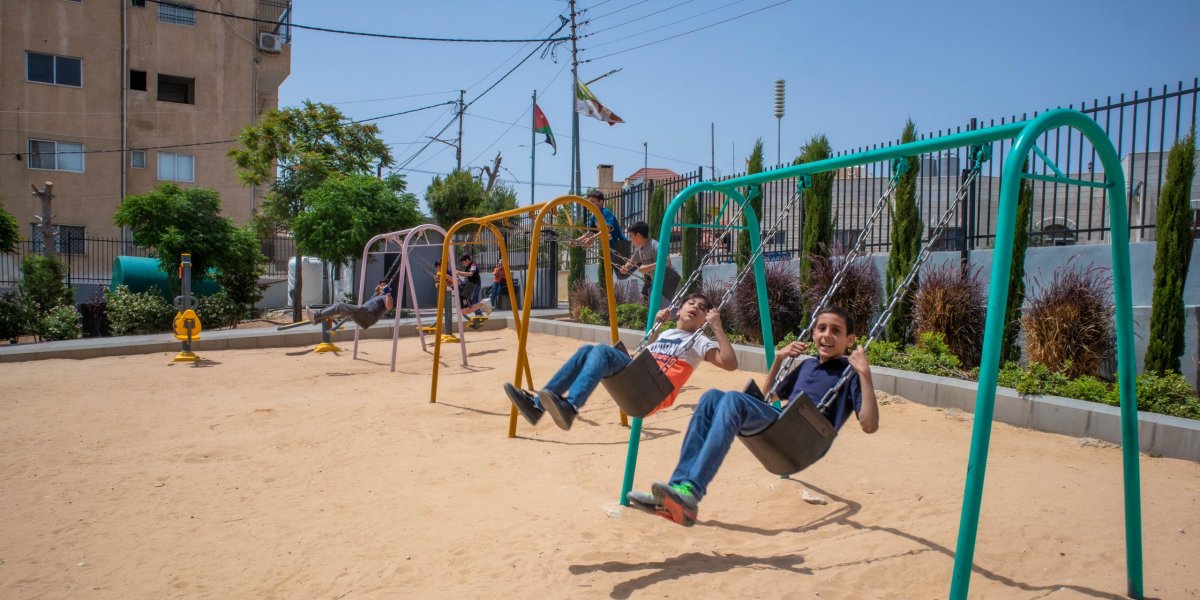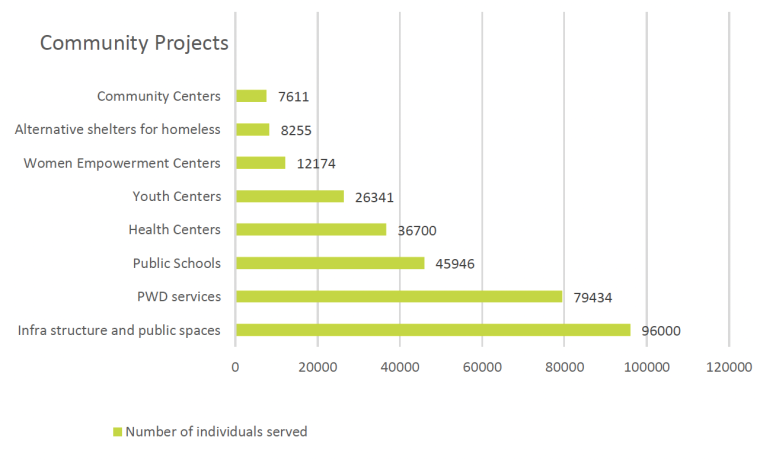

Middle East Refugee Crisis Initiative (2018 – 2023)
Jordan hosts the second-highest share of refugees per capita in the world, among the 11 million people in the country, one-third are refugees. The vast majority of refugees in Jordan encompasses Palestinian, Syrian, and Iraqi nationals, while around 77,335 came from other countries. The large number of refugees has put extreme pressure on public services, water, and energy resources. Housing availability and affordability for low-income households is a persistent challenge for Jordan. Jordan ranked third in the list of most water-scarce countries in the world, facing an absolute water shortage’ by 2025 following current trends.
Since 2018, The Middle East Refugee Crisis Initiative (MERCI) program has been supporting home rehabilitations and public facility improvement for vulnerable Syrian refugees, and Jordanian families through 14 different grants has been supporting over 300,000 individuals through 780 home rehabilitation, green home interventions, and improving 52 public facilities. Building community impact in Jordan entails enhancing equitable access to safe, resilient homes and basic services under the SHELTER and WASH sectors, with the aim of improving living conditions and overall well-being. This objective is pursued through the MERCI program, which prioritizes bolstering housing access and community resilience through the implementation of Disaster Risk Reduction measures. Additionally, Habitat for Humanity establishes strong community partnerships through the MERCI program, as well as through its revolving fund and global volunteer programs. The MERCI program supports vulnerable communities at two levels: (1) the Household Level, with a focus on household home rehabilitation, targeting PWDs, orphans, FHHs, and other vulnerable Jordanian and Syrian refugees, and (2) the Community Level aiming to enhance infrastructure and upgrade local public facilities to provide sustained services for vulnerable groups such as shelters for homeless people and children inclusion centers.

We reach to over 300,000 individuals through 780 home rehabilitation, green home interventions and improve 52 public facilities



We constructed four green homes across three different areas and rehabilitated 28 homes with green interventions. The outcomes included a 10% decrease in average monthly electricity bills, attributed to improved home insulation resulting in reduced heating and cooling expenses. We also achieved a 34% reduction in water consumption by repairing water pipe connections and addressing leaks, leading to lower water bills. Furthermore, our initiatives included educating residents on energy-saving techniques, fostering enhanced awareness, and adoption of sustainable practices.
